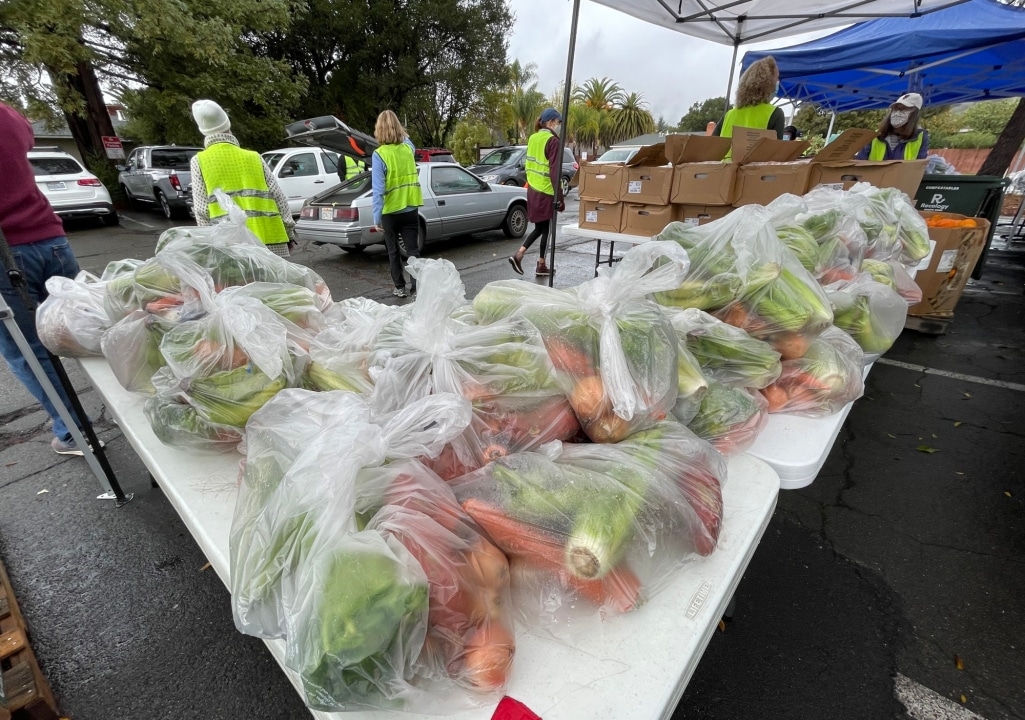Bay Area study: Pandemic aid kept needy afloat
December 26, 2021
by Giuseppe Ricapito

Despite the financial ravages of the pandemic, the number of people struggling financially or in poverty did not dramatically change in the Bay Area, according to a new study.
The report — by Tipping Point Community and the Othering & Belonging Institute at the University of California, Berkeley — involved a survey of 1,329 residents in Alameda, Contra Costa, Marin, San Francisco, San Mateo and Santa Clara counties in the winter of 2020-2021. It compared that data with responses from the same residents collected in 2018 and 2019.
The survey found that nearly 1 in 5 people entered the pandemic in poverty and remain there today. It also found that poverty continues to affect Black and Latino communities at an alarmingly higher rate than Asian and White communities.
The study credited emergency cash assistance programs from government and nonprofits for keeping people out of poverty. But social services leaders in Marin said the need remains, and especially in low-income non-White communities.
Marisa Giller, communications director for the nonprofit Tipping Point Community, said the regional study could not be broken down to Marin-specific details.
“Challenges in one county impact others –– we have to take a regional approach to addressing poverty, so that’s why Marin and five other counties were included in the study, and that’s why those in Marin should care,” she said. “Lastly, even though Marin has incredible wealth, there are also pockets of extreme poverty –– another reason why this study is relevant.”
According to 2019 census data, Marin County has a poverty rate of 6.9% or about 17,800 people. The median household income is about $115,000, and per capita income is about $73,000.
The survey indicated that government benefits prevented more than 200,000 Bay Area residents from slipping into poverty. Those benefits include federal stimulus payments, increases in unemployment benefits and nonprofit aid programs that were administered at a municipal level.
Read the full story on The Mercury News: